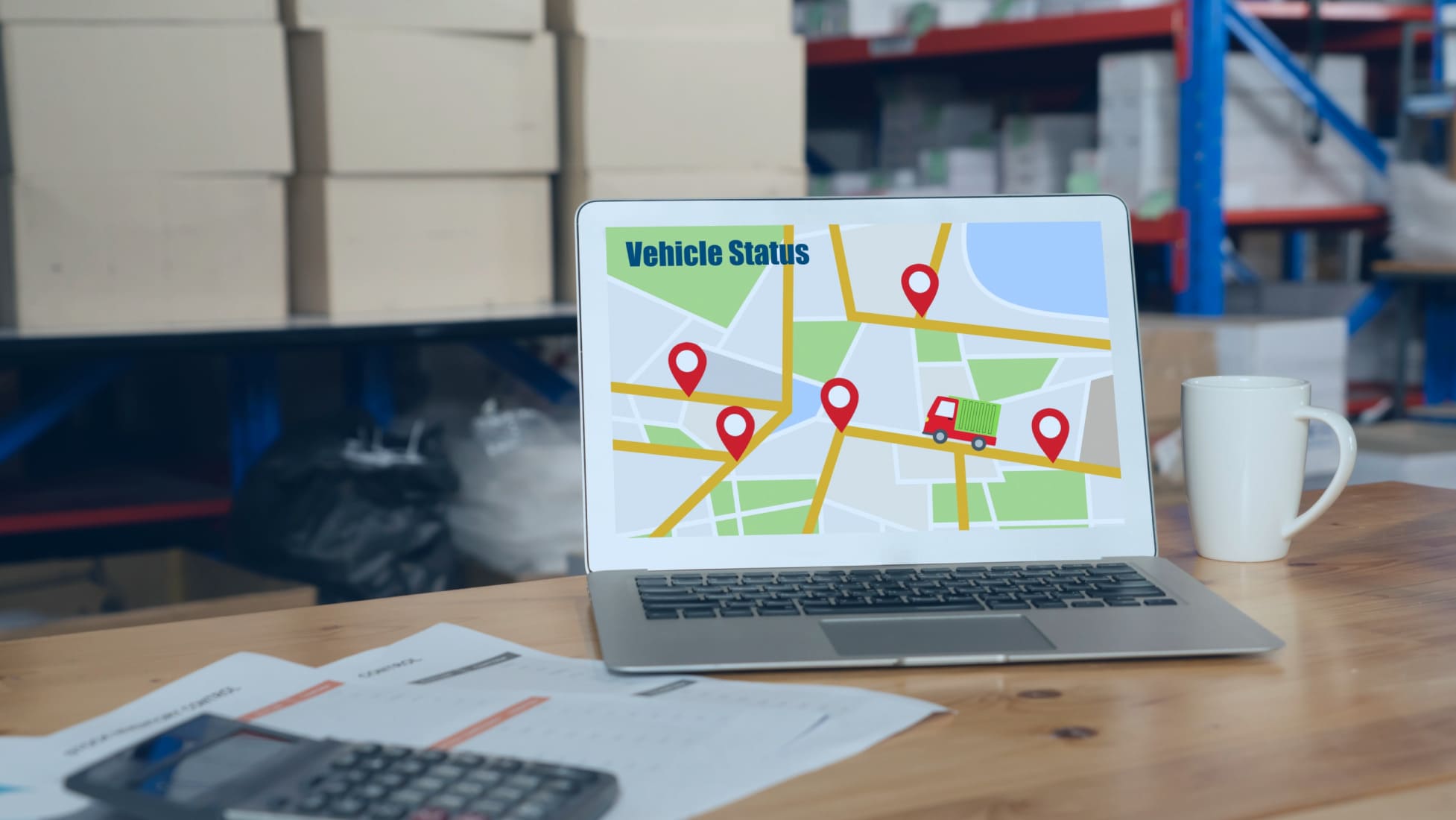
In today’s fast-paced logistics and transportation industry, efficiency and real-time data are paramount. This is where Tracking Fleet Management Software comes into play, serving as an essential tool for businesses aiming to optimize their fleet operations. Essentially, TFMS provides a centralized platform for monitoring vehicles, managing drivers, and ensuring that cargo reaches its destination in the most efficient manner possible. The importance of such software cannot be overstated, as it directly impacts cost savings, operational efficiency, and customer satisfaction.
As we delve deeper into the key features of Tracking Fleet Management Software, it’s important to understand that these features are designed to address the complex challenges of fleet management. From ensuring driver safety to reducing fuel consumption and maintenance costs, the software offers a range of functionalities that can transform how fleets operate. Let’s explore these core features in detail.
Core Features of Tracking Fleet Management Software
Real-Time GPS Tracking
At the heart of any efficient Tracking Fleet Management Software lies real-time GPS tracking. This feature enables fleet managers to monitor the location of their vehicles at any moment, enhancing operational transparency and security. GPS tracking provides precise data on each vehicle’s position, speed, and direction of travel, allowing for immediate responses to unexpected situations such as delays, route deviations, or emergencies.
The benefits of real-time GPS tracking extend beyond mere location monitoring. It facilitates better route planning, ensures timely deliveries, and enhances customer satisfaction by providing accurate ETAs. Furthermore, it plays a critical role in theft prevention and recovery, as vehicles can be tracked and recovered swiftly if they go off-course or are stolen. This level of visibility is invaluable for optimizing fleet operations and maintaining a competitive edge in the logistics sector.
Route Optimization
Route optimization is another cornerstone feature of the software, significantly impacting fuel consumption, delivery times, and overall fleet efficiency. By analyzing various factors such as traffic conditions, vehicle type, and delivery windows, Tracking Fleet Management Software can determine the most efficient routes for each vehicle. This not only reduces fuel costs but also minimizes wear and tear on vehicles, contributing to longer service life and reduced maintenance expenses.
The impact of route optimization is profound, especially in high-volume delivery environments. It ensures that drivers take the shortest and least congested routes, saving time and resources. Additionally, by avoiding traffic hotspots and optimizing delivery schedules, companies can achieve more with less, enhancing their sustainability practices and reducing their carbon footprint.
Vehicle Maintenance Scheduling
Proactive vehicle maintenance is crucial for extending the lifespan of fleet vehicles and avoiding costly repairs or downtimes. Tracking Fleet Management Software offers vehicle maintenance scheduling features that alert managers about upcoming service requirements based on mileage, engine hours, or time intervals. This predictive approach to maintenance ensures that vehicles remain in top condition, reducing the likelihood of breakdowns and extending vehicle longevity.
By scheduling regular maintenance checks, fleet managers can avoid the cascading effects of vehicle failures, such as delayed deliveries and tarnished company reputation. Additionally, maintaining vehicles in optimal condition improves fuel efficiency and reduces the risk of accidents related to vehicle malfunction, further emphasizing the cost-saving and safety-enhancing benefits of the software.
Driver Behavior Monitoring
Monitoring driver behavior is vital for ensuring safety and compliance within the fleet. Tracking Fleet Management Software can track various driver actions, such as speeding, harsh braking, and rapid acceleration, providing insights into driving habits that could pose risks or lead to inefficiencies. This information enables fleet managers to implement targeted training programs, encouraging safer driving practices and potentially lowering insurance premiums due to reduced risk.
Driver behavior monitoring also has a direct impact on operational costs and vehicle wear and tear. By identifying and addressing risky driving habits, companies can reduce fuel consumption, minimize the risk of accidents, and extend the service life of their vehicles, contributing to a safer and more cost-effective fleet operation.
Fuel Management
Fuel management is a critical aspect of fleet management, with fuel costs often representing a significant portion of operational expenses. Tracking Fleet Management Software provides tools for tracking and analyzing fuel usage across the fleet, identifying patterns and opportunities for improvement. This can include monitoring for excessive idling, route inefficiencies, or suboptimal driving behaviors that increase fuel consumption.
With detailed fuel usage reports, fleet managers can make informed decisions to enhance fuel efficiency, such as route adjustments, driver coaching, or vehicle replacements. Effective fuel monitoring leads to significant cost savings and contributes to environmental sustainability by reducing emissions.
Reporting and Analytics
The power of Tracking Fleet Management Software is not only in data collection but also in its ability to transform this data into actionable insights. Reporting and analytics features offer comprehensive overviews of fleet performance, highlighting areas of efficiency and those needing improvement. Customizable reports can cover various metrics, such as fuel usage, maintenance costs, driver performance, and route efficiency, providing a data-driven foundation for strategic decisions.
These analytics capabilities enable fleet managers to identify trends, forecast needs, and allocate resources more effectively. By leveraging data, companies can continuously refine their operations, achieving greater efficiency, cost savings, and competitive advantage in the logistics industry.
Additional Features to Consider
Integration Capabilities
In today’s interconnected digital ecosystem, the ability of Tracking Fleet Management Software to integrate with other business systems is invaluable. Integration capabilities extend the functionality of the software, allowing for seamless data exchange between HR systems, financial software, customer relationship management (CRM) platforms, and more. This interconnectedness ensures that all departments have access to real-time fleet data, facilitating better communication, decision-making, and overall operational efficiency.
For instance, integrating Tracking Fleet Management Software with accounting software automates billing and invoicing processes by directly linking delivery data with financial operations. Similarly, connecting tracking software with CRM systems can enhance customer service through accurate, real-time delivery updates. The ability to integrate widely with other business tools makes TFMS not just a fleet management solution but a central part of a company’s digital strategy, driving efficiency and growth across all sectors of the business.
Compliance Management
Compliance with regulatory requirements is a critical aspect of fleet management, especially in industries with strict regulations regarding hours of service (HoS), electronic logging devices (ELD), and vehicle maintenance. Tracking Fleet Management Software can significantly ease the burden of compliance by automating the tracking and reporting of necessary information. This includes logging driver hours to ensure compliance with HoS regulations, maintaining electronic records for inspection, and managing maintenance schedules to meet safety standards.
By automating compliance tasks, the software not only reduces the risk of regulatory fines but also minimizes administrative burdens on staff. This allows companies to focus more on core operational tasks rather than manual compliance management. Effective compliance management through TFMS also enhances safety and reputation, as it ensures that fleets adhere to the highest standards of operation and maintenance.
Customization and Scalability
Every business has unique needs and challenges, which is why the customization and scalability of TFMS are essential features. A scalable Tracking Fleet Management Software can grow with your business, accommodating more vehicles and more complex operations without requiring a complete system overhaul. Customization allows businesses to tailor the software to their specific requirements, whether it’s custom reporting, specific alert systems, or unique integration needs.
Customizable and scalable Tracking Fleet Management Software solutions ensure that businesses are not paying for unnecessary features while allowing them to add functionality as their fleet grows. This flexibility is crucial for maintaining efficiency and competitiveness, as it allows companies to adapt quickly to changes in the market or in regulatory environments. The software that can be customized and scaled ensures long-term viability and supports continuous improvement in fleet operations.





